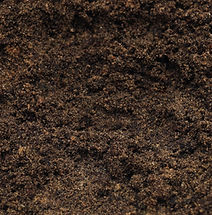

RIVER FRIENDLY FARMING
A Sustainable Approach to Agriculture
The River Friendly Farm Certification addresses a wide range of environmental concerns. The practices implemented by producers ensure food is produced in a manner that promotes a healthy ecosystem and doesn't degrade the long-term productivity of the land.
HOW RIVER FRIENDLY FARMING PROTECTS OUR REGION:

Cleaner Water
River Friendly Farms implement practices that limit pollution from excess nutrients, bacteria, and pesticides.
Their actions protect drinking water for people living down stream.

Healthier Soil
In a world where 40% of farmland is suffering from significant degradation, River Friendly Farms build soil organic matter and protect topsoil from erosion.
These actions ensure soil stays healthy and productive for years to come.

Wildlife Habitat
River Friendly Farms encourage natural pest suppression and pollinators.
They also create diverse stream-side habitats and ensure a healthy ecosystem for native fish, birds, and insects.

Climate Resilience
Agriculture, land use, and forestry contributed 24% of the U.S. greenhouse gases in 2020.
River Friendly Farm practices can reverse carbon emissions by storing billions of tons of carbon in soils through a natural process called soil carbon sequestration.
River Friendly Farm
ABOUT THE
CERTIFICATION

OUR MISSION
The River Friendly Farm Certification promotes environmentally friendly farms and recognizes farmers who are stewards of their land and surrounding water resources.
OUR HISTORY
The River Friendly Farm Certification started as a project of the New Jersey Water Supply Authority and North Jersey RC&D with funding through New Jersey Department of Environmental Protection (NJ DEP) and New Jersey Natural Resources Conservation Service (NRCS). The certification enjoys support from leaders in both conventional and organic agriculture, government agencies, and other non-profit organizations supporting conservation and resource protection.
Learn more about program history >>
CLEANER WATER
Reducing the flow of excess nutrients and chemicals into waterways and increasing water infiltration to support groundwater recharge and reduce flooding.
HEALTHIER SOILS
Ensuring long-term productivity of soils by encouraging natural soil functions and reducing erosion.
NATURAL HABITAT
Creating a healthy ecosystem for fish, amphibians, birds, and insects.
CLIMATE RESILIENCE
Building resilient soils that promote water infiltration and sequester carbon in the soil.
RIVER FRIENDLY FARMS ARE EVALUATED BASED ON THEIR COMMITMENT TO:

CERTIFICATION
River Friendly Farm is a voluntary certification program with standards rooted in sustainable agriculture practices. Farm eligibility is determined by an agricultural specialist and committee. Consumers can purchase products from certified River Friendly Farms knowing they are supporting farmers who are good stewards of our land and water resources.
CERTIFIERS
The River Friendly Farm certification program is administered by North Jersey RC&D and the Foodshed Alliance.
FUNDING
The River Friendly Farm certification is supported by grant funding that includes the William Penn Foundation, National Fish and Wildlife Foundation, and New Jersey Department of Environmental Protection.
PARTNER
ORGANIZATIONS
The River Friendly Farm Certification Partner Network currently includes:










